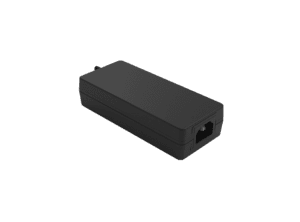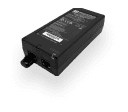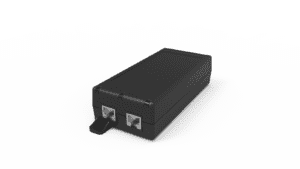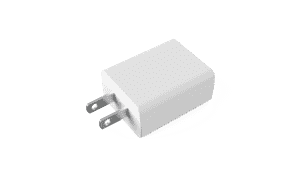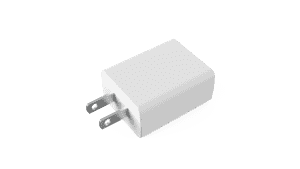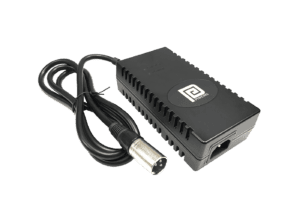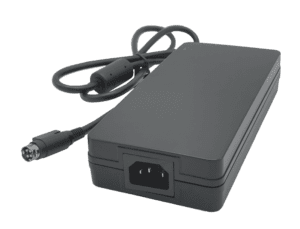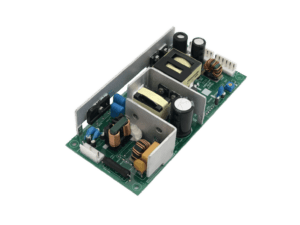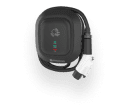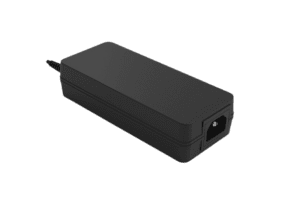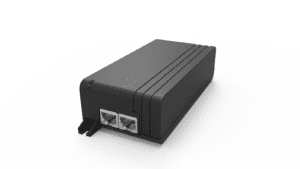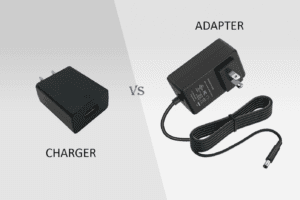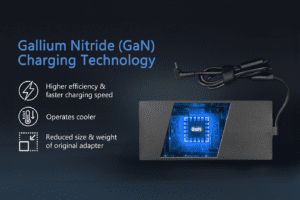BLOG
How to Choose the Best OEM Battery Charger Manufacturer for Industrial and Consumer Devices
Table of contents

When you’re designing a battery-powered product—whether it’s an industrial handheld scanner, a smart home device, or a piece of connected fitness equipment—the charger you choose matters. A reliable battery charger isn’t just about powering up; it’s about protecting your battery, meeting safety standards, and delivering a great user experience.
For OEMs, finding the right battery charger manufacturer means identifying a partner who can deliver on performance, customization, and compliance across different environments and industries. Industrial devices often require rugged, high-durability solutions, while consumer electronics prioritize compact design, branding, and safety certifications.
This guide will help you understand how to evaluate battery charger manufacturers and how to find a long-term partner that can support your evolving product needs.
What Makes a Good Battery Charger Manufacturer for OEM Applications
The best OEM battery charger manufacturers combine technical expertise with a deep understanding of compliance, usability, and long-term product lifecycle needs. It’s not just about voltage—it’s about how your charger fits into your product, brand, and market goals.When selecting the optimal OEM battery charger manufacturer for your industrial or consumer devices, it is essential to consider more than just technical proficiency. The ideal manufacturer will possess a comprehensive understanding of regulatory compliance, user-friendliness, and the long-term product lifecycle requirements. It’s not solely about meeting voltage specifications; it’s about ensuring the charger seamlessly integrates with your product, aligns with your brand image, and supports your overall market objectives.
A successful partnership with an OEM battery charger manufacturer involves a multifaceted approach. The manufacturer should demonstrate expertise in electrical engineering and battery technology, as well as a thorough understanding of relevant safety standards and certifications. They should also be able to offer design and customization options to meet the specific needs of your product and target market. Additionally, the manufacturer should provide excellent customer support and technical assistance throughout the product development and deployment process.
By choosing a manufacturer that embodies these qualities, you can ensure that your battery charger not only functions effectively but also enhances the user experience, reinforces your brand identity, and contributes to the long-term success of your product in the marketplace. Remember, the right OEM battery charger manufacturer is more than just a supplier; they are a strategic partner who can help you achieve your business goals.
Qualities to Look For
- Experience designing for your industry (medical, industrial, consumer, etc.)
- Customization for output, connector types, cable length, and enclosures
- In-house engineering and testing capabilities
- Global certifications like UL, CE, FCC, and RoHS
- Flexible production volumes and consistent supply
Best Practices for OEMs
- Share your battery chemistry and charge requirements early in the design process
- Choose a manufacturer with strong documentation and regulatory knowledge
- Look for a long-term partner who can scale with your product line
A manufacturer who understands your device—not just your power spec—can help you launch faster, avoid issues, and support growth.
Key Differences Between Industrial and Consumer Battery Charging Needs
While both industrial and consumer products rely on battery chargers, the expectations and requirements can vary significantly. Understanding these differences helps you select the right manufacturer for your application.While both industrial and consumer products rely on battery chargers, the expectations and requirements for these chargers can differ significantly. These differences encompass various aspects, including functionality, safety standards, durability, charging speed, cost, and regulatory compliance.
For industrial applications, battery chargers often need to withstand harsh environmental conditions, such as extreme temperatures, dust, and moisture. They may also need to be compatible with a wide range of battery chemistries and voltages, and support specialized charging algorithms for optimal battery performance and longevity. Additionally, industrial chargers may require advanced communication and control features for integration into complex systems. Safety features and certifications are also critical in industrial settings to protect workers and equipment.
Consumer battery chargers, on the other hand, are typically used in less demanding environments and prioritize ease of use, aesthetics, and affordability. While safety remains important, the regulatory requirements may be less stringent than those for industrial chargers. Consumer chargers often focus on specific battery chemistries and device types, and may offer features like fast charging and wireless charging to meet consumer demands for convenience.
Understanding these differing expectations and requirements helps you select the right manufacturer for your specific application. A manufacturer specializing in industrial battery chargers may not be the best fit for consumer products, and vice versa. By choosing a manufacturer with expertise and experience in your target market, you can ensure that your battery charger meets the necessary standards and delivers the desired performance and functionality.
Industrial Applications
- Require ruggedized, sealed enclosures for harsh environments
- Often need support for extended temperature ranges or vibration tolerance
- Must comply with industrial standards like IEC 61010 or IP-rated protections
- Prioritize safety, reliability, and long operational lifecycles
Consumer Devices
- Need compact, stylish form factors
- May include fast-charging or USB-C compatibility
- Require global certifications and high-volume scalability
- Focus on user experience, branding, and cost-efficiency
The right battery charger manufacturer will understand these differences and be able to tailor solutions accordingly—ensuring your product works flawlessly in its real-world environment.
Why Customization is Key to OEM Charger Success
Off-the-shelf chargers can work in limited scenarios, but OEMs typically need custom designs to deliver the best performance, fit, and user experience. Customization goes beyond voltage—it includes firmware, casing, connectors, charging speed, and safety features.While off-the-shelf battery chargers may suffice in certain limited situations, Original Equipment Manufacturers (OEMs) frequently require bespoke designs to achieve optimal performance, seamless integration, and an enhanced user experience. Customization extends far beyond mere voltage considerations—it encompasses a wide array of factors, including firmware, casing design, connector types, charging speed, and an array of safety features.
Tailoring firmware allows OEMs to fine-tune charging algorithms, optimize battery life, and implement proprietary features. Custom casing ensures a perfect fit within the device, complements its aesthetics, and can incorporate branding elements. Choosing the right connectors guarantees compatibility with the device and may involve selecting specific types or configurations. Custom designs can prioritize rapid charging or slower, battery-friendly charging profiles. OEMs can integrate advanced safety features to prevent overcharging, overheating, and other potential hazards.
By collaborating with a manufacturer capable of delivering these custom solutions, OEMs can create a charger that not only meets the technical requirements but also aligns with the overall product vision and delivers a superior user experience.
Common Customization Options
- Specific charge curves based on battery chemistry (Li-ion, LiFePO4, etc.)
- Custom connectors, cable types, and cable lengths
- Enclosure design, including branding or waterproofing
- Firmware to support charging status, indicators, or system-level control
Best Practices for OEMs
- Choose a manufacturer that offers design input, prototyping, and iterative testing
- Ask about long-term availability and support for future updates
- Work with teams that can modify chargers as your product evolves
Custom chargers help protect your product, meet user expectations, and avoid future integration headaches—making them a smart investment from the beginning.
CLIENT'S QUOTE
"Phihong’s PoE solutions have made a huge difference for us! Our network runs more efficiently, and we’ve seen real cost savings. We couldn’t be happier!"
Certification and Safety Standards Every OEM Should Consider
Battery chargers may look simple on the outside, but the internal safety mechanisms and compliance requirements can be complex. Choosing a manufacturer familiar with the certification landscape is essential for product approvals, global sales, and long-term customer safety.
Common Certifications for OEM Battery Chargers
- UL / cULus: Electrical safety standards required in the U.S. and Canada
- CE and UKCA: Compliance for Europe and the UK
- FCC (Part 15): Electromagnetic compatibility for consumer and industrial electronics
- RoHS / REACH: Ensures the charger is free from hazardous materials
- IEC 62133, IEC 60601-1, IEC 60335: Required for batteries and chargers used in industrial, medical, and household devices
- DOE Level VI / EU CoC Tier 2: External power supply energy efficiency standards
Best Practices for OEMs
- Identify required certifications before product design is finalized
- Confirm that your charger supplier handles documentation and testing
- Choose a partner who stays updated on evolving international standards
Working with a charger manufacturer that handles compliance from day one reduces launch risks and ensures product safety across markets.
Why OEMs Trust Phihong for Battery Charger Design and Manufacturing
Phihong has built a global reputation as a go-to partner for OEMs needing safe, scalable, and custom power charging solutions. From smart consumer devices to rugged industrial systems, we help OEMs create charging solutions that perform reliably and meet compliance from day one.
What Phihong Brings to OEMs
- Custom-designed AC-DC and DC-DC battery chargers for a range of applications
- Support for lithium-ion, LiFePO4, NiMH, lead-acid, and hybrid battery chemistries
- Global certifications and in-house testing for UL, CE, FCC, RoHS, and DOE VI
- Flexible manufacturing in Vietnam and other global sites for consistent delivery
- Long-term lifecycle support, documentation, and revision tracking
OEMs choose Phihong not just for products—but for partnership. We work closely with engineering teams to design, test, certify, and scale power solutions that match product goals and real-world usage.
How to Get Started with a Battery Charger Manufacturer You Can Trust
Choosing the right partner starts with asking the right questions. Whether you’re preparing to launch your first product or expanding into global markets, a collaborative battery charger manufacturer can simplify your workflow and shorten your time to market.
First Steps for OEMs
- Define your device’s battery chemistry, voltage, and charging time goals
- Share environmental specs (e.g., operating temperature, indoor/outdoor use)
- Ask for example applications, sample timelines, and documentation process
What to Expect from the Right Manufacturer
- Customizable solutions and rapid prototyping
- Certification support for all major regions
- Post-sale engineering assistance and long-term component availability
When you select a manufacturer who understands your industry, device requirements, and future scaling needs, you gain more than a supplier—you gain a trusted partner in product development.

Contact Our Team Today!
Our dedicated sales team and international partners are prepared to support you with your latest projects and initiatives globally.
Explore More with Phihong USA
As we conclude our exploration of PoE technology, it’s evident how these innovations are streamlining power and data integration across various industries. Phihong USA stands at the forefront of this technological advancement, offering a diverse range of power solutions designed to meet the evolving needs of modern industries.
Phihong USA’s extensive product lineup includes:
- Power over Ethernet (PoE) Solutions: Delivering reliable power and data transmission over a single cable, ideal for simplifying network installations and reducing costs.
- AC/DC Adapters and Power Supplies: From compact adapters to industrial-grade power supplies, Phihong provides solutions that ensure efficiency and reliability in various applications.
- Battery Chargers: Customizable chargers for lithium-ion and lead-acid batteries, supporting a wide range of power requirements for mobility and industrial applications.
- Medical Power Supplies: Specialized power solutions designed to meet the stringent requirements of the healthcare industry, ensuring safety and reliability.
Phihong USA is committed to innovation and excellence, continually developing products that meet the highest standards of performance and reliability. Their global reach and dedication to customer support make them a trusted partner in powering the future.
Here are some useful links to explore Phihong USA’s offerings further and bring in new potential clients:
Visit Phihong USA to discover how their advanced power solutions can support your business needs. Whether you’re looking to upgrade your network, or find reliable power supplies, Phihong USA has you covered.
By choosing Phihong USA, you’re partnering with a leader in power technology, ensuring your operations run smoothly and efficiently with top-tier power solutions. Contact Us today!
FAQ
What makes a battery charger suitable for industrial use?
Industrial battery chargers are designed to operate reliably in harsh environments where consumer-grade solutions may fail. These applications often involve exposure to heat, dust, vibration, or fluctuating power input. As a result, industrial chargers typically include robust enclosures (sometimes IP-rated for waterproof or dustproof protection), reinforced components, and thermal management features.
Industrial chargers are also built for longevity and compliance with stricter standards, such as IEC 61010 or EN 60950, and may support wider input voltage ranges to accommodate international deployments.
Unlike basic retail chargers, industrial models often come with built-in safeguards, such as overvoltage protection, reverse polarity detection, and intelligent charge control for large or complex battery systems.
If you’re designing a handheld scanner, control unit, or mobile robot, an industrial-grade battery charger ensures consistent performance in unpredictable environments. OEMs should work with a manufacturer who understands these challenges and can help design a solution specifically for industrial deployment.
Can one charger support multiple device models in my product line?
Yes, a well-designed custom charger can often support multiple products in your lineup—especially if they share similar battery specs or charging requirements. This approach is efficient for OEMs who want to streamline logistics, reduce cost, and ensure consistent performance across devices.
To do this, the charger needs to be flexible in terms of output voltage, connector options, or firmware-based charge control. Some OEMs request chargers with switchable output settings or firmware that can detect different devices and apply the correct charging profile automatically.
Another approach is to design a modular power system where one charger connects to multiple devices through standardized ports or cables.
The key is to work with a manufacturer who offers this kind of customization and understands how to balance universal compatibility with safe, device-specific performance. This also helps you consolidate certifications, reduce inventory, and simplify the user experience for customers.
What safety features should I look for in an OEM battery charger?
Safety is non-negotiable when it comes to battery chargers—especially in regulated industries or high-usage environments. Your charger should be designed with multiple layers of protection to prevent damage to the battery, the device, and the end user.
Key safety features include:
- Overvoltage protection: Prevents charging beyond safe voltage limits
- Overcurrent and short-circuit protection: Stops damage from power surges or connector issues
- Thermal protection: Detects overheating and shuts down or reduces current to avoid fires
- Reverse polarity detection: Ensures the charger won’t operate if the battery is connected incorrectly
- Charge time limiters and trickle charging: Prevents battery degradation over time
Some chargers also include smart diagnostics, visual indicators, and firmware-based error handling.
When choosing a manufacturer, make sure they test for these features and can provide certification reports that verify compliance with safety standards like UL or IEC. These protections aren’t just optional—they’re essential for keeping your brand and users safe.
What are the benefits of customizing my OEM battery charger?
Customizing your battery charger helps you align the power solution with your specific product goals—whether that’s efficiency, branding, form factor, or regional compliance. Custom chargers can be tailored to meet your device’s unique power profile, which means more accurate charging, better battery life, and safer operation.
Customization also opens the door for features like fast charging, unique LED indicators, rugged enclosures, or support for specific connectors and cables. If your product is sold globally, you can work with your manufacturer to include support for multiple voltage inputs and country-specific plug types.
Another major benefit is certification. A custom charger can be designed to pass UL, CE, FCC, and other compliance standards required in your target markets—reducing delays and avoiding legal issues.
Finally, custom chargers allow for long-term control. You can plan for part availability, revisions, and future compatibility, which is critical for OEMs with multi-year product roadmaps.
By investing in a custom charging solution, you’re setting your device up for stronger performance, smoother compliance, and better user experience.
Why do OEMs choose Phihong for battery charger manufacturing?
Phihong has earned the trust of OEMs worldwide by delivering reliable, certified, and fully customizable battery charging solutions for nearly every industry. Whether you’re building a rugged industrial device, a smart wearable, or a medical-grade tool, our team understands the power needs behind your innovation.
We support a wide range of battery chemistries and offer tailored AC-DC and DC-DC chargers with options for rapid charging, smart communication, and ruggedization. Our engineers work with your team to develop a solution that meets safety standards and fits your specific product environment—mechanically and electrically.
OEMs choose Phihong because we don’t just ship hardware—we provide lifecycle support, regional compliance guidance, and scalable manufacturing from global sites like Vietnam. We ensure long-term part availability, revision control, and performance consistency for every device in your lineup.
With Phihong, you gain a partner that grows with you—bringing deep power supply expertise and a commitment to helping you succeed with every product you launch.

